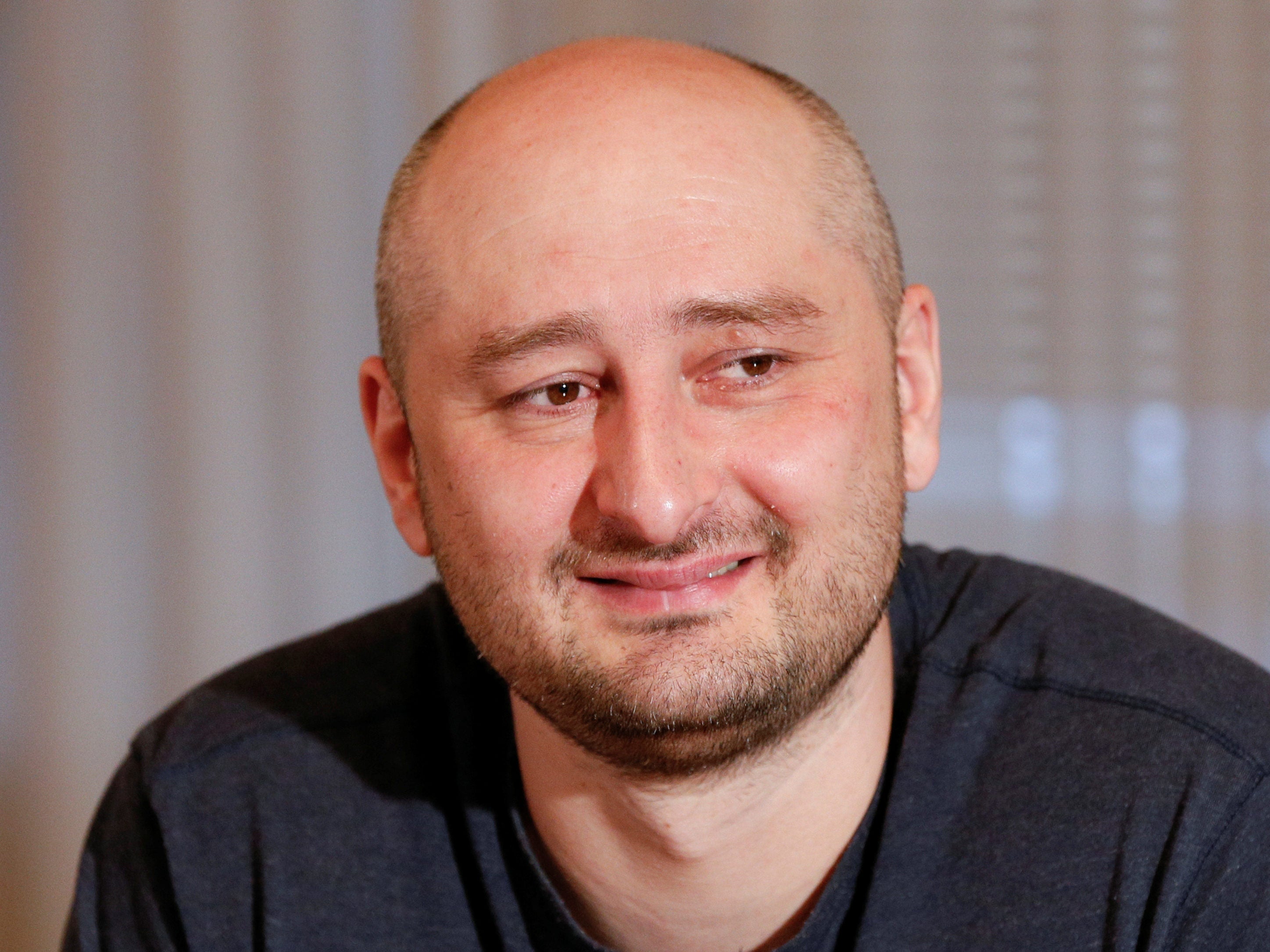
Press freedom groups have said they fear the staged murder of Russian journalist Arkady Babchenko, as part of a secret plot to capture hitmen hired to kill him, could have seriously damaged media credibility.
The Committee to Protect Journalists has written to the Ukranian president demanding answers as it fears Babchenko’s faked murder by the Ukranian Security Service (SBU) could “undermine confidence in the work of journalists and temper public outrage when they are killed”.
Ukranian authorities announced Kremlin critic Babchenko’s death on Tuesday, saying he had been fatally shot in the back as he left his Kiev apartment to buy bread and accusing Russia of involvement in the murder.
However Babchenko (pictured) appeared alive at a news conference less than 24 hours later as the SBU revealed the “murder” had been contrived to capture his would-be killer and the Russian man believed to have hired him.
The Russian ministry subsequently slammed the Ukranian plot as an “anti-Russian provocation”.
CPJ executive director Joel Simon wrote an open letter to Petro Poroshenko last night with a series of questions for the president, including:
- How imminent and credible was the alleged threat to Babchenko’s life?
- What evidence does the SBU have that the Russian security service orchestrated the alleged assassination plot?
- What evidence does Ukraine have against the alleged organiser and alleged contract killer?
- Who is the alleged mastermind of the plot?
Simon also questioned who in the Ukranian Government was aware of the operation and why the SBU needed to go to the “extreme measure” of announcing Babchenko’s murder.
He wrote: “Mr President, as you stated you were fully informed of the SBU-led operation and congratulated the agency on its success, we believe that you are best placed to address the many outstanding questions.
“We urge you to hold a press conference as soon as possible with all the relevant Ukrainian officials to address the questions above and all others that arise.
“We also call on you, Mr President, to ensure that any trial of the alleged organiser in the plot to kill Babchenko is open to the public.
“For the sake of the credibility of the prosecution and of the Ukrainian government in general, it is imperative that the entire process be as open and transparent as possible.”
The International Federation of Journalists said it was concerned that the operation could “dramatically damage media credibility as well as journalism as a whole”.
It also said it could have serious diplomatic consequences and that the plot strengthened the idea of journalists and politicians conspiring together.
IFJ president Philippe Leruth said: “By spreading false evidence about his murder, Ukrainian authorities have seriously eroded the credibility of information, and their communication runs the risk of being considered a propaganda operation.
“Was it really necessary to stage his death in order to stop an alleged attack? The International Federation of Journalists fights against impunity, which benefits journalists’ murderers, but it also demands transparency of information.”
Reporters Without Borders secretary-general Christophe Deloire said it was “distressing and regrettable” that SBU had “played with the truth” during the operation.
Deloire said: “Was such a scheme really necessary? There can be no grounds for faking a journalist’s death.”
Babchenko told reporters in Kiev yesterday that he could have refused when Ukrainian officials approached him with the idea for the ruse about a month ago, but that he agreed of his own free will.
Babchenko said he was worried the entire time that the operation would fall through, but was relieved after it was completed.
“I only stopped being afraid at the morgue,” he said, explaining he was smeared with pig’s blood and applied with make-up before being taken to the morgue as part of the elaborate plot.
Babchenko, an outspoken critic of Vladimir Putin, fled Russia in February 2017 saying he was receiving threats and was concerned he might be jailed.
He moved to Kiev last autumn, where he worked as a host for the Crimean Tatar TV station ATR.
Russia is ranked 148 out of 180 counties on the World Press Freedom Index 2018, compiled by press freedom campaign group Reporters Without Borders. Ukraine is ranked 101.
Picture: Reuters/Valentyn Ogirenko
Email pged@pressgazette.co.uk to point out mistakes, provide story tips or send in a letter for publication on our "Letters Page" blog
